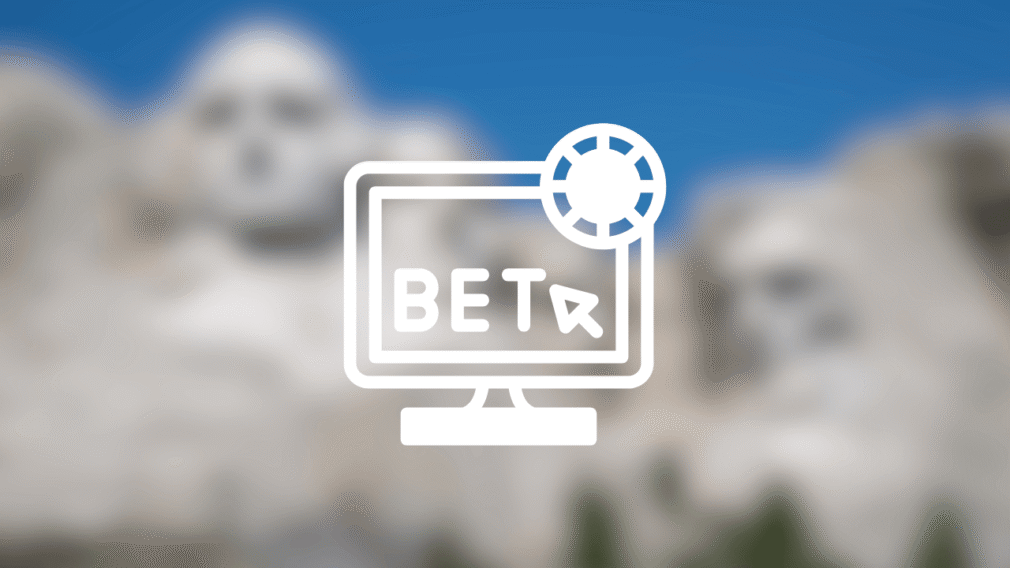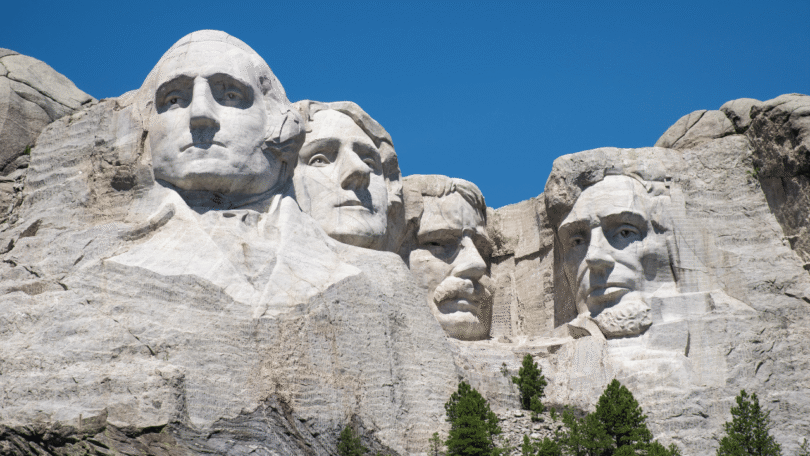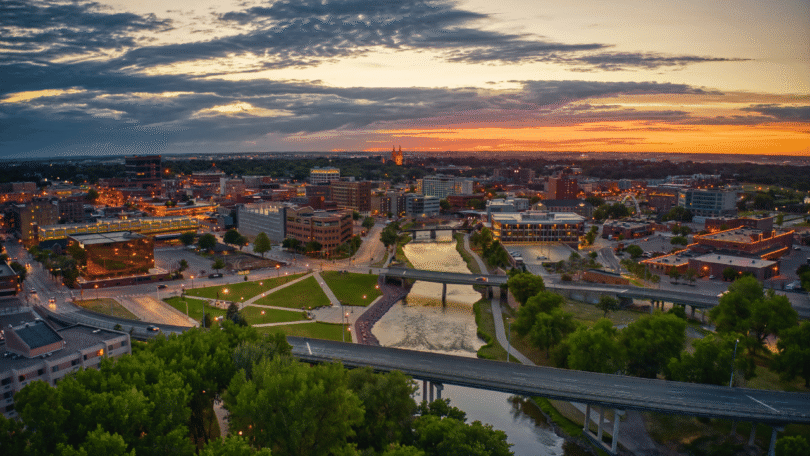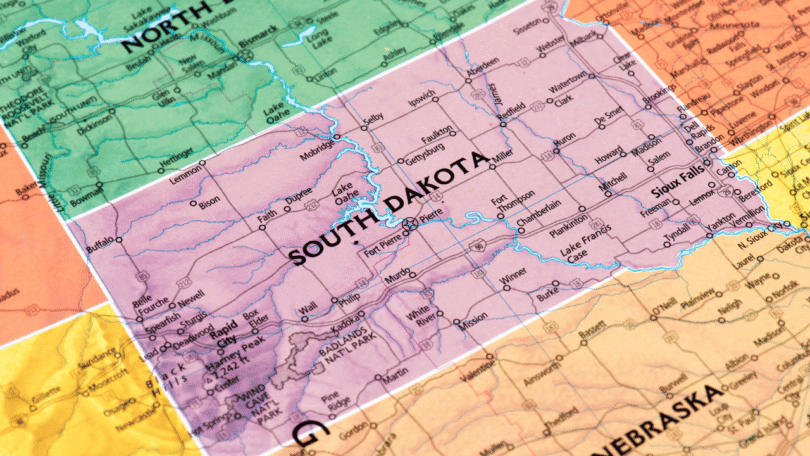Is Sports Betting Legal in South Dakota? Everything You Need to Know
Sports betting is legal in South Dakota, but restricted to in-person wagering at licensed casinos in Deadwood and select tribal casinos across the state. Legalized in September 2021 after voters approved Constitutional Amendment B in November 2020, the market operates under the South Dakota Commission on Gaming, requiring bettors to be 21 or older and physically present at approved venues.

The Path to Legalization Sports Betting South Dakota
South Dakota’s sports betting market emerged following the U.S. Supreme Court’s 2018 Murphy v. NCAA decision, which struck down the Professional and Amateur Sports Protection Act (PASPA), enabling states to legalize sports wagering.
South Dakota’s gambling history, rooted in Deadwood’s 1988 legalization of blackjack, poker, and slots, and tribal gaming under the 1988 Indian Gaming Regulatory Act (IGRA), set the stage for expansion.
In January 2019, bipartisan legislators introduced Senate Joint Resolution 2 (SJR 2), proposing a constitutional amendment to allow sports betting in Deadwood. On November 3, 2020, Constitutional Amendment B passed with 58.5% voter approval, authorizing sports betting within Deadwood’s city limits.
In March 2021, Governor Kristi Noem signed SB 44, finalizing the legal framework, and the first bet was placed on September 9, 2021, at Tin Lizzie Gaming Resort. Tribal casinos, under IGRA, also adopted sports betting through amended compacts.
Efforts to legalize statewide online betting, including SJR 502 (2022) and HJR 5006 (2023), failed due to concerns over problem gambling and legislative resistance.
A 2025 bipartisan proposal, SJR 507, aims to allocate 90% of betting revenue to property tax relief, signaling ongoing interest in expansion.
Regulations Shaping South Dakota’s Sports Betting Market
The South Dakota Commission on Gaming, a five-member body appointed by the governor, oversees sports betting, ensuring integrity and compliance. Key regulations include:
Age and Location: Bettors must be 21 or older, verified by ID checks at retail sportsbooks or electronic KYC processes. Wagers are restricted to licensed Deadwood casinos or tribal venues, with geolocation technologyensuring compliance for on-site mobile betting. Violations risk $1,000 fines or 90 days in jail.
Taxation: A 9% tax on adjusted gross gaming revenue (GGR) supports the Deadwood Historic Preservation Fund (8%) and the state’s General Fund (1%), funding education, infrastructure, and problem gambling programs. Winnings over $600 face a 24% federal tax, with no state income tax. Operators pay a 0.25% federal excise taxand a $5,000 licensing fee, plus $2,000 annually per gaming device.

Restricted Markets: Prohibited bets include high school sports, minor league games, in-state college teams(e.g., Jackrabbits, Coyotes), college player prop bets, politics, entertainment awards (e.g., Oscars), judged sports (except surfing), and LIV Golf Tour. Individuals integral to a sport (e.g., players, coaches) cannot bet on their discipline.
Legal Framework: Federal laws like the 1961 Wire Act and 2006 UIGEA target illegal operators, with state penalties for unlicensed gambling up to 7 years in prison and $2,000 fines. The Commission enforces audited odds, secure transactions, and AML compliance, with regular audits every two years.
The retail-only model and strict regulations ensure safety but limit accessibility, especially for rural residents.
Where to Bet in South Dakota: Venues and Platforms
South Dakota’s sports betting is confined to physical locations, creating vibrant social hubs:
Deadwood Casinos:
- Tin Lizzie Gaming Resort (555 Main St, Deadwood): Features a BetMGM sportsbook with betting windows, kiosks, and large screens, open daily (hours vary, typically 8:00 AM–midnight).
- Cadillac Jack’s Gaming Resort (360 Main St, Deadwood): Offers a BetMGM sportsbook with modern amenities.
- Deadwood Mountain Grand (1906 Deadwood Mountain Dr): Hosts Dale’s Sportsbook Bar & Grill with kiosks and TVs.
- Gold Dust Casino & Hotel (688 Main St): Provides a betting lounge with live wagering options.
- Mustang Sally’s, BetBodega (Buffalo-Bodega Complex), BetLodge Sportsbook (The Lodge at Deadwood), The Landmark, and Mineral Palace Hotel & Gaming (ISI Sports) also offer sportsbooks.
Tribal Casinos:
- Prairie Wind Casino & Hotel (Pine Ridge, Oglala Sioux Tribe): Offers sports betting under tribal-state compacts.
- Grand River Casino (Mobridge): Serves tribal patrons with wagering options.
- Royal River Casino & Hotel (Flandreau), Dakota Sioux Casino (Watertown), Dakota Connection(Sisseton), Lode Star Casino (Fort Thompson), Golden Buffalo Casino (Lower Brule), Rosebud Casino(Mission), and Fort Randall Casino (Wagner) provide sportsbooks.
On-Site Mobile Betting: Apps like BetMGM operate within casino premises, requiring geolocation verification. Statewide online betting is unavailable due to failed legislative efforts (e.g., SJR 502, HJR 5006).
Daily Fantasy Sports (DFS): Platforms like DraftKings, FanDuel, PrizePicks, Underdog Fantasy, OwnersBox, Betr, and ParlayPlay are legal in a regulatory gray area, offering online skill-based contests accessible statewide.
Deadwood’s casinos enhance tourism, while tribal venues support reservation economies, but the lack of online betting limits rural access.
Betting Options: What Can You Wager On?
South Dakota’s sportsbooks offer diverse betting options, shaped by its retail model and regulations:
Bet Types:
- Moneyline: Bet on the outright winner.
- Point Spreads: Wager on victory margins.
- Totals (Over/Under): Predict combined scores.
- Parlays: Combine multiple bets for higher payouts.
- Teasers: Adjust spreads for better odds.
- Futures: Bet on long-term outcomes (e.g., championship winners).
- Prop Bets: Wager on specific game events (e.g., first touchdown scorer).
- Live Betting: Real-time bets with dynamic odds.
- Exchange Wagering: Peer-to-peer bets, subject to Commission approval.

Popular Sports:
- Professional Leagues: High demand for NFL (Minnesota Vikings, Denver Broncos), NBA (Minnesota Timberwolves), MLB (Minnesota Twins), NHL (Minnesota Wild, Colorado Avalanche), MLS, UFC, boxing, golf, auto racing (NASCAR), tennis, cricket, and table tennis.
- College Sports: Betting on teams like South Dakota State Jackrabbits and University of South Dakota Coyotes is prohibited, but out-of-state college teams (e.g., Nebraska Cornhuskers) are popular. College player prop bets are banned.
- Esports: Available with regulatory approval, appealing to younger bettors.
Restricted Markets: Prohibited bets include high school sports, minor leagues, in-state college teams, college player props, politics, entertainment awards, judged sports (except surfing), horse/dog racing (pari-mutuel), and LIV Golf Tour.
Cultural Influence: With no major professional teams, South Dakota’s betting scene thrives on college sports fandom and regional pro team support, amplified by Deadwood’s social betting atmosphere during events like the Super Bowl or March Madness.
The retail-only model limits bet variety compared to online markets, driving some to offshore platforms.
Sports Betting Impact on South Dakota’s Economy
Sports betting contributes modestly but significantly to South Dakota’s economy. In 2023, the betting handle reached $20 million, generating $1.8 million in GGR and approximately $162,000 in taxes at the 9% rate. In 2024, GGR was $920,918, reflecting steady growth.
These funds support the Deadwood Historic Preservation Fund, state General Fund, Lawrence County, tourism promotion, and problem gambling programs (up to $30,000 annually).
The industry supports over 1,755 direct jobs in Deadwood’s gaming sector, with a payroll exceeding $76 million, and additional jobs in tribal casinos. Tourism in Deadwood, boosted by sportsbooks, extends the gaming season, particularly during football season and March Madness, increasing spending on lodging, dining, and entertainment.
In 2022, South Dakota’s tourism industry generated $7.6 billion, with sports betting enhancing Deadwood’s appeal.
Compared to Iowa ($2.2 billion handle in 2024) and Colorado ($5.8 billion), South Dakota’s market is small due to its retail-only model and population under 900,000. However, it outperforms per capita expectations, with a $22 handle per adult in 2023.
|
Year |
Handle ($) |
Gross Gaming Revenue ($) |
Tax Revenue ($) |
|---|---|---|---|
|
2022 |
15 million* |
1.4 million* |
126,000* |
|
2023 |
20 million |
1.8 million |
162,000 |
|
2024 |
9.24 million** |
920,918 |
82,883 |
*Estimated based on trends.
**Cumulative handle since 2021.
Offshore Betting Risks: Why Stick to Legal Sportsbooks?
Some South Dakotans use offshore platforms like Bovada, BetOnline, or BetUS for online access, broader markets (e.g., politics, college player props), credit betting, or cryptocurrency payments. These platforms are illegal and carry significant risks:
-
Legal Risks: Violating geolocation rules incurs $1,000 fines or 90 days in jail. Unlicensed gambling faces up to 7 years in prison and $2,000 fines. Federal laws (Wire Act, UIGEA) may lead to account seizures.
-
Financial Risks: Offshore sites risk delayed or withheld payouts, account closures, or site disappearances, with no legal recourse.
-
Data Security Risks: Lacking U.S. data protections, they increase risks of fraud and identity theft, especially with crypto transactions.

Legal sportsbooks offer:
-
Audited Odds: Certified by independent labs for fairness.
-
Secure Transactions: Encryption and segregated player funds.
-
Responsible Gambling Tools: Self-exclusion, deposit/time limits, and AML compliance, absent in offshore platforms.
Choosing regulated venues ensures safety and accountability.
Responsible Gambling
South Dakota promotes responsible gambling through robust measures at Deadwood and tribal sportsbooks:
-
Self-Exclusion: Bans from 6 months to lifetime, with forfeited winnings funding problem gambling programs. Players register with the Commission, and casinos report excluded individuals monthly.
-
Deposit/Spending Limits: Daily, weekly, or monthly caps on deposits or wagers.
-
Time/Wager Limits: Restrict session durations or bet amounts.
-
Cool-Off Periods: Temporary account suspensions.
-
Cashless Systems: Track player activity and enforce limits.
-
Staff Training: Employees are trained to identify problem gambling, assist patrons, and debunk myths (e.g., “hot” machines). They ensure minors are excluded and guide patrons to resources.
Resources include:
-
National Problem Gambling Helpline (1-800-GAMBLER): 24/7 support via phone, text, or chat.
-
South Dakota Council on Problem Gambling: Offers counseling, support groups, and prevention programs.
-
Gamblers Anonymous and Gam-Anon: Peer support for bettors and families.
-
Birches Health: Telehealth treatment for gambling addiction.
-
Self-Assessment Tools: Help evaluate gambling habits.
Practical tips:
-
Budget 1–5% of disposable income.
-
Take 30–60-minute breaks.
-
Avoid chasing losses.
-
Balance betting with activities like visiting Mount Rushmore or attending Jackrabbits games.
Approximately 2–3% of U.S. adults face gambling issues, with South Dakota allocating up to $30,000 annually from gaming taxes to treatment.
Future of Sports Betting in South Dakota
South Dakota’s sports betting market is stable but limited by its retail-only model. The 2026 expiration of gaming contracts could prompt a shift, with the Commission exploring online betting to compete with Iowa and Colorado. Recent proposals like SJR 507 (2025), allocating 90% of revenue to property tax relief, suggest growing support for expansion. Failed efforts (e.g., SJR 502, HJR 5006) highlight resistance over addiction concerns, but revenue leakage to neighboring states fuels debate.
Technological advancements could enhance the market:
-
AI and Machine Learning: Personalize bets and adjust live odds.
-
Blockchain: Ensure transparent, secure transactions.
-
AR/VR: Offer immersive betting experiences.
-
Micro-Betting: Wager on specific in-game events (e.g., next play).
Restrictions on college player props, in-state college teams, high school sports, and LIV Golf will likely persist to protect integrity. A Spectrum Gaming Group report estimates online betting could generate $10–15 million annuallyin taxes, boosting growth if legalized.
Is sports betting legal in South Dakota?
Yes, in-person at Deadwood and tribal casinos, but not online statewide.
Where can I bet?
At Deadwood casinos (e.g., Tin Lizzie, Cadillac Jack’s) and tribal casinos (e.g., Prairie Wind, Royal River).
Can I bet on South Dakota State Jackrabbits?
No, in-state college team betting is prohibited, as are college player prop bets.
What’s the minimum betting age?
21, verified by ID or KYC processes.
What bets are available?
Moneyline, spreads, totals, parlays, teasers, futures, live betting; no high school, politics, or in-state college bets.
Why avoid offshore sites?
They risk fines, payment delays, and data breaches, unlike regulated platforms.
Where can I get help for gambling issues?
Contact 1-800-GAMBLER or the South Dakota Council on Problem Gambling.
Recommended

